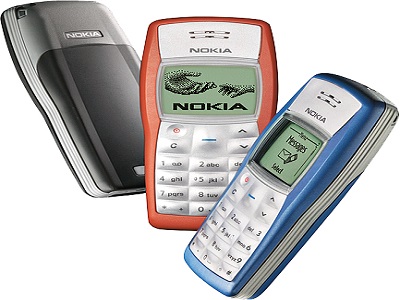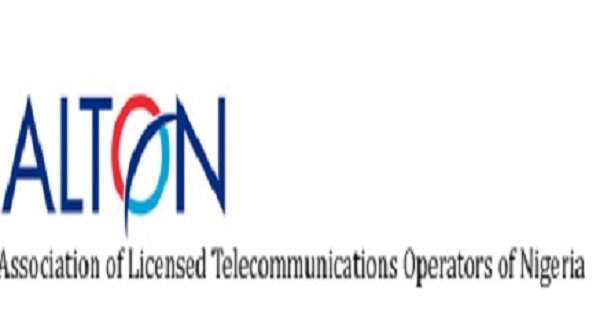Telecom
A Decade On – Nokia’s Record Breaking Phone

Ten years ago, Nokia showed off a new mobile phone that was destined to become the world’s most popular mobile phone ever.
With over 250 million sold, the Nokia 1100 mobile phone was announced in August 2003, and went on sale shortly afterwards. By May 2007, sales had reached 200 million, and has since risen to an estimated 250 million, although the phone is now discontinued.
When launched, the world had 1.2 billion mobile phone users, and Nokia was predicting that it would reach 2 billion in 2008. Today, it is estimated that there are around 6 billion phone accounts in use, although that number is boosted by high use of multiple SIM cards by customers in many developing countries.
When Nokia announced that it had shipped its billionth mobile phone in November 2005 — it was a Nokia 1100 that came off the factory assembly line.
The phone offered a reliable simplicity and was aimed at the developing markets, where its sealed keypad and non-slip sides for dusty and wet climates, plus a built-in torch made it exceptionally popular. With a standby time of up to 400 hours, it was ideal for countries with intermittent electricity supplies.
A batch of Nokia 1100 handsets made in Nokia’s since closed factory in Bochum, Germany later fetched huge prices on the black market in 2009 when it was found that a software flaw made it easier to reprogramme the handsets to intercept SMS messages being sent to online banking customers.
Originally nicknamed the “penny” when under development, it adopted Nokia’s classic numerical naming convention when announced in August 2003.
The display screen was rudimentary, even by the standards of the time, with 96×65 pixels, but more usefully, up to 4 lines text messaging, a changeable font size and predictive text long before it was popularised by Apple’s spelling mistakes.
The phone also came with Snake — reputed to be the world’s most widely played computer game after it was put in most Nokia phones.
However, announced at the same time as the Nokia 1100, the comparable Nokia 2300 faded into obscurity as its more famous brother soared up the sales charts.
A decade later, the Nokia 1100 is still the world’s most popular mobile phone ever sold.
Telecom
Huawei Cloud Named Carrier Hybrid Cloud Leader in Sub-Saharan Africa

On November 11, during the AfricaCom event, GlobalData unveiled its latest industry white paper, “Unleashing the Potential of Carrier-Grade Hybrid Cloud in Sub-Saharan Africa 2025”, highlighting key insights into the region’s evolving hybrid cloud landscape.
Based on comprehensive research across 13 Sub-Saharan countries and interviews with 25 leading telecom carriers, the report named Huawei Cloud as the Carrier Hybrid Cloud Leader in Sub-Saharan Africa, recognizing its leadership in technological innovation and solid market performance.

Huawei Cloud Ranked No.1 in Sub-Saharan Carrier Hybrid Cloud
Based on GlobalData’s research, assessing both technology leadership and market performance metrics, Huawei Cloud secured the top position among carrier-grade hybrid cloud vendors in the region.
Microsoft was positioned second and also recognized as a Leader, followed by AWS and Google as Dominant players. VMware and Oracle were considered Challengers.
Competitive Landscape: Carrier Grade Hybrid Cloud Sub Saharan Africa Region 2025
From a Market Performance perspective, Huawei Cloud achieved the highest rating for expanding market presence, supported by its extensive solution offerings and deep telco expertise. The study evaluated vendors against three key metrics: Market Presence, Market Differentiation, and Telco Expertise. Huawei demonstrated a stronger market push than its competitors, with Microsoft ranked second, followed by Google, AWS, VMware, and Oracle.

Market Performance: Carrier Grade Hybrid Cloud Sub Saharan Region 2025
In terms of Technology Leadership, Huawei Cloud achieved the number one aggregate score across seven major categories: Strategic Partnership, Performance and Reliability, Full Stack Infrastructure, Platform and Control, Professional Services, Big Data and Warehouse, and Artificial Intelligence. Huawei Cloud outperformed competitors in Strategic Partnership, Platform and Control, Professional Services, and Big Data & Warehouse, demonstrating a coherent and comprehensive capability across its carrier hybrid cloud portfolio.

Technology Benchmarking: Sub-Saharan Africa
Outlook for Carrier Hybrid Cloud in Africa
As Africa’s telecom industry accelerates digital transformation, hybrid cloud is becoming the cornerstone for innovation. With rapid growth in mobile data, expanding fiber networks, and rising adoption of AI and fintech services, carrier-grade hybrid cloud will empower carriers to deliver secure, intelligent, and scalable services that drive the continent’s next wave of digital growth. Huawei Cloud is committed to supporting this evolution, providing leading hybrid cloud solutions and deep telco expertise to help carriers succeed in the region.
Click the link to view the full report.(LINK)
Telecom
FG Launches Galaxy Backbone’s 1Gov ECM Platform, Marks Major Milestone in Nigeria’s Digital Transformation Journey

The Federal Government of Nigeria, through the Office of the Head of the Civil Service of the Federation (OHCSF), has officially launched the 1Gov Enterprise Content Management (ECM) Platform, developed and powered by Galaxy Backbone Limited (GBB). The launch marks a historic milestone in Nigeria’s journey toward building a digitally-driven, efficient, and knowledge-based public service.

The Go-Live ceremony, held at the Head of Service Conference Hall, Abuja, brought together senior government officials, including Permanent Secretaries from the Ministry of Solid Minerals Development, Ministry of Foreign Affairs, Ministry of Special Duties, the management of Galaxy Backbone Limited, partners, and key stakeholders in Nigeria’s public sector digital ecosystem.
Delivering her address, the Head of the Civil Service of the Federation, Mrs. Esther Didi Walson-Jack, described the launch as a defining moment in the transformation of Nigeria’s civil service. She noted that the deployment of the GBB 1Gov ECM represents the fulfilment of a major commitment under the Federal Civil Service Strategy and Implementation Plan (FCSSIP) aimed at driving efficiency, transparency, and data-driven decision-making across the service.
Mrs. Walson-Jack highlighted the progress made over the past year and seven months, including the creation of 59,344 official email accounts, comprehensive data cleansing and harmonization processes, and the successful migration from the previous Laserfiche ECMS to Galaxy Backbone’s sovereign 1Gov Cloud ECM platform. She emphasized that no Ministry, Department, or Agency (MDA) will need to restart the process, as the OHCSF has fully transitioned to the locally hosted platform.
In outlining the rationale behind the migration, she identified four key pillars underpinning the initiative:
- National Sovereignty of Digital Infrastructure: Strengthening Nigeria’s ownership and control over its data and digital systems through a government-owned platform managed by GBB.
- National Interoperability: Eliminating silos by enabling seamless collaboration and information sharing across MDAs through a unified platform.
- Scale Advantage: Promoting uniform record management and operational standards across government institutions.
- Faster and Inclusive Adoption: Enabling swift onboarding, electronic workflows, and e-signature adoption to accelerate the government’s transition to digital processes.
During a live demonstration of the 1Gov ECM platform, Mr. Ayodeji Bakare, 1Gov ECM Project Lead, reaffirmed GBB’s commitment to powering the Federal Government’s digital transformation goals. He revealed that over 893 staff members have already been enrolled and are actively using key features such as GovMail, document management, and workflow automation tools that enhance efficiency, transparency, and accountability.
Representing the Managing Director/CEO of Galaxy Backbone Limited, Professor Ibrahim A. Adeyanju, the Executive Director, Finance and Corporate Services, Mr. Sani Ibrahim, commended the OHCSF for its visionary leadership and collaboration. He stated that the deployment of the 1Gov ECM brings Nigeria significantly closer to achieving a fully paperless government by December 31, 2025, emphasizing that the Galaxy Backbone 1Government Cloud remains central to the nation’s digital transformation agenda.
He further highlighted that GBB has already deployed its 1Government Cloud solution across several ministries and agencies, including the Ministry of Foreign Affairs, Ministry of Solid Minerals Development, and the Federal Ministry of Communications, Innovation and Digital Economy, among others. This, he noted, reflects GBB’s unwavering commitment to supporting all MDAs in their digitalisation journey, ensuring that Nigeria achieves its national digital transformation and sustainability goals.
The event concluded with renewed commitments from government leaders, partners, and MDAs to continue working collaboratively with Galaxy Backbone in advancing the modernization of Nigeria’s public service through the deployment of secure, innovative, and sustainable digital systems.
Telecom
ALTON Seeks Clear Rules to Strengthen Nigeria’s Digital Economy

Association of Licensed Telecommunications Operators of Nigeria (ALTON) has urged lawmakers to provide unambiguous regulatory guidance in the proposed National Digital Economy and E-Governance Bill, 2025, emphasising that clarity and structured collaboration are essential to drive investor confidence and sustainable growth in the country’s digital sector.

Gbenga Adebayo, chairman, ALTON
Gbenga Adebayo, chairman, ALTON, presented the association’s position during the Joint National Assembly Committee hearing on the Bill, commending legislators for their efforts to modernise Nigeria’s digital landscape and establish a legal framework for emerging technologies, including Artificial Intelligence (AI).
Representing all licensed telecom network and infrastructure operators in Nigeria, ALTON acknowledged the transformative potential of the Bill but highlighted concerns about overlapping mandates, institutional independence, and the need for coordinated regulatory action.
“The (NCC) should retain its statutory oversight of telecommunications networks and infrastructure, while the National Information Technology Development Agency (NITDA) should lead on digital policy and e-governance,” Adebayo said, while noting, “Ensuring that these agencies operate within clearly defined roles will prevent duplication, enhance efficiency, and foster investor trust.”
The association warned that regulatory ambiguity between NITDA and NCC could slow implementation, disrupt service delivery, and undermine confidence in Nigeria’s digital economy.
ALTON recommended a deliberate separation of policy guidance and technical regulation, citing international best practices from the United Kingdom, India, and the European Union, where such structures have successfully balanced accountability with innovation.
The association also called for a review of Section 82 of the Bill, which grants ministerial directive powers, arguing that safeguarding regulatory independence is critical for maintaining investor confidence and ensuring transparent governance.
To further strengthen inter-agency collaboration, the association proposed the creation of a National Digital Cooperation and Interoperability Framework
The framework would formalise joint action among NITDA, NCC, the Nigeria Data Protection Commission (NDPC), and the Office of the National Security Adviser (ONSA), providing a structured platform for coordination and policy alignment.
“Embedding structured collaboration within the Bill is essential to avoid policy fragmentation and improve coordination across government institutions,” Adebayo noted.
ALTON reaffirmed its commitment to supporting Nigeria’s digital transformation while emphasising that the success of the Digital Economy and E-Governance Bill depends on establishing clear jurisdictional boundaries, ensuring institutional independence, and promoting effective regulatory cooperation.
“Our goal is a sustainable digital economy driven by innovation, accountability, and investor trust,” Adebayo added, stressing that clarity and collaboration are the pillars that will define Nigeria’s digital future.

 News1 day ago
News1 day agoPreventive, Silicon Valley Firm May Birth Genetically Engineered Babies

 E-Business1 day ago
E-Business1 day agoNigeria to Unveil Single-Entry Emergency Passport for Citizens Abroad

 E-Financial1 day ago
E-Financial1 day agoFG Seeks Fresh $500m World Bank Loan for MSMEs

 General News1 day ago
General News1 day agoCOVID-19 Vaccines may Help some Cancer Patients Fight Tumors

 Telecom1 day ago
Telecom1 day agoGlo Announces N1m Monthly Giveaway in New Trivia Game

 E-Business1 day ago
E-Business1 day agoNITDA Highlights Economic Impact, Digital Transformation Gains, as ICEGOV 2025 Concludes in Abuja

 E-Financial1 day ago
E-Financial1 day agoUBA Reaffirms Commitment to Empowering African Entrepreneurs

 E-Financial1 day ago
E-Financial1 day agoNDIC Now Better Positioned to Prosecute Parties at Fault for Bank Failure



























